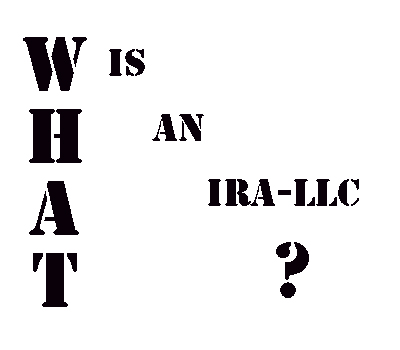
At Accuplan we refer to an IRA-LLC as “ICO”. An IRA-LLC (ICO) is a special purpose limited liability company, which is either fully or partially owned by an individual retirement account (IRA) held with an IRA custodian such as American Estate & Trust, LC (“AET”). The IRA may be either a traditional IRA or a Roth IRA. One of the main reasons why a client would create an IRA-LLC (ICO) would be to directly control their IRA funds through the establishment of an LLC. This can be very advantageous if you are purchasing real estate through the LLC because all rent checks and expenses can go directly through the LLC rather than through the IRA custodian.
Because clients have direct access to their IRA funds through the LLC they need to make sure that they run the LLC in a manner that will not disqualify their IRA. Below are some examples of ways clients can disqualify their IRA:
1. The IRA-LLC (ICO) purchases residential real estate, and either the IRA owner, members of his/her family, or other disqualified persons live in the residence. This is a clear violation of the “prohibited transaction” rules. Even if the disqualified person who lives in the residence pays fair market rent to the IRA or IRA-LLC (ICO), this is still prohibited.
2. The ICO purchases either commercial or residential real estate, and the ICO manager rents the property to an outside party at a discounted rate, less than the going rate. The outside party/renter allows the ICO manager or other disqualified person to sub-rent, at no cost or at a discounted rate, an office or other space in the same property. Or, the outside party/renter provides some other benefit or service to a disqualified person as either explicit or implicit compensation for receiving the discounted rental rate on the ICO property. Either way, this is an act of self-dealing, because the ICO manager or other disqualified person is receiving a personal benefit in exchange for a discounted rate given to the outside party/renter. This is a good example of how an indirect benefit to a disqualified person from the ICO property is a prohibited transaction.
3. The ICO manager is the owner of the IRA, or is a disqualified person for some other reason. The ICO purchases rental property and rents it out to tenants. The property generates expenses which could be any of: repairs, maintenance, insurance, taxes, etc. The ICO has insufficient funds to pay the expense, so the ICO manager or another disqualified person pays the expense. This is a prohibited transaction, and points out the need of making sure the ICO has enough reserve capital to make mortgage payments or pay for any other costs which may arise. If the property loses a tenant or fails to generate positive cash flow, the ICO must still be able to carry the costs of ownership of the property without help from a disqualified person. [Note that there is a class exemption that, under certain circumstances, permits short-term loans to an IRA that is having cash flow problems.
4. The ICO manager makes a properly structured and secured loan from the ICO to an outside party. The outside party may be an individual or a business. The outside party may have undue influence or control over the ICO manager. For example, the outside party might be someone who is not technically a disqualified person, but one who nevertheless has above normal influence or control over the ICO manager. This could be the “significant other” (girlfriend/boyfriend) or could be an employer of the ICO manager. Even though the loan is properly structured, and the outside party is not technically a disqualified person, this arrangement is unlikely to pass the self-dealing “smell test” with either the IRS or the DOL. If the IRS disallows the legality of this, they would probably treat it as a prohibited transaction.
5. The ICO manager has personal funds to invest and wants to use a successful investment advisor to manage the investments. But the manager’s personal funds do not meet the minimum dollar amount required by the investment advisor to take on a new client. So, the ICO manager offers to permit the investment advisor to handle the ICO funds as well, and the ICO funds combined with the ICO manager’s personal funds now meet the minimum dollar amount required by the investment advisor. This is an act of self-dealing, because the ICO manager is receiving a personal benefit. That benefit is getting the usage of the investment advisor which the ICO manager wants for his personal funds, by letting the investment advisor also handle the ICO funds. This is a good example of how an indirect benefit to a disqualified person from the ICO property is a prohibited transaction.
There are many more cases that could disqualify your IRA through the ICO. If you would like to discuss your situation with our company feel free to call, email, or comment below.
Author: Ben Barker, Self-Directed IRA Professional
1.801.683.9291
ben@accuplan.net